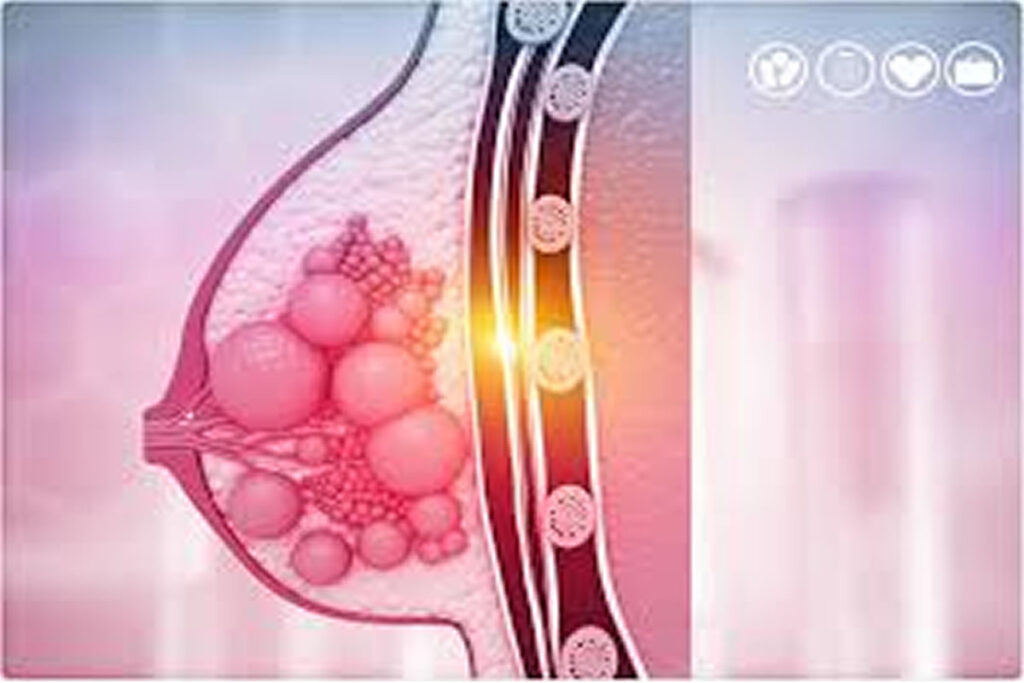Breast cancer prevention starts with healthy habits — such as limiting alcohol and staying physically active. Understand what you can do to reduce your breast cancer risk.
If you’re concerned about developing breast cancer, you might be wondering if there are steps you can take to help prevent breast cancer. Some risk factors, such as family history, can’t be changed. However, there are lifestyle changes you can make to lower your risk.
What can I do to reduce my risk of breast cancer?
Research shows that lifestyle changes can decrease the risk of breast cancer, even in women at high risk. To lower your risk:
- Limit alcohol. The more alcohol you drink, the greater your risk of developing breast cancer. The general recommendation — based on research on the effect of alcohol on breast cancer risk — is to limit yourself to no more than one drink a day, as even small amounts increase risk.
- Maintain a healthy weight. If your weight is healthy, work to maintain that weight. If you need to lose weight, ask your doctor about healthy strategies to accomplish this. Reduce the number of calories you eat each day and slowly increase the amount of exercise.
- Be physically active. Physical activity can help you maintain a healthy weight, which helps prevent breast cancer. Most healthy adults should aim for at least 150 minutes a week of moderate aerobic activity or 75 minutes of vigorous aerobic activity weekly, plus strength training at least twice a week.
- Breast-feed. Breast-feeding might play a role in breast cancer prevention. The longer you breast-feed, the greater the protective effect.
- Limit postmenopausal hormone therapy. Combination hormone therapy may increase the risk of breast cancer. Talk with your doctor about the risks and benefits of hormone therapy. You might be able to manage your symptoms with nonhormonal therapies and medications. If you decide that the benefits of short-term hormone therapy outweigh the risks, use the lowest dose that works for you and continue to have your doctor monitor the length of time you’re taking hormones.
Can a healthy diet prevent breast cancer?
Eating a healthy diet might decrease your risk of some types of cancer, as well as diabetes, heart disease and stroke. For example, women who eat a Mediterranean diet supplemented with extra-virgin olive oil and mixed nuts might have a reduced risk of breast cancer. The Mediterranean diet focuses on mostly on plant-based foods, such as fruits and vegetables, whole grains, legumes, and nuts. People who follow the Mediterranean diet choose healthy fats, such as olive oil, over butter and eat fish instead of red meat.
Maintaining a healthy weight also is a key factor in breast cancer prevention.
Is there a link between birth control pills and breast cancer?
There’s some evidence that hormonal contraception, which includes birth control pills and IUDs that release hormones, increases the risk of breast cancer. But the risk is considered very small, and it decreases after you stop using hormonal contraceptives.
A recent study that showed an association between hormonal contraceptive use and breast cancer determined one additional breast cancer could be expected for every 7,690 women who use hormonal contraception for at least one year.
Discuss your contraceptive options with your doctor. Also consider the benefits of hormonal contraception, such as controlling menstrual bleeding, preventing an unwanted pregnancy, and reducing the risk of other cancers, including endometrial cancer and ovarian cancer.
What else can I do?
Be vigilant about breast cancer detection. If you notice any changes in your breasts, such as a new lump or skin changes, consult your doctor. Also, ask your doctor when to begin mammograms and other screenings based on your personal history.

